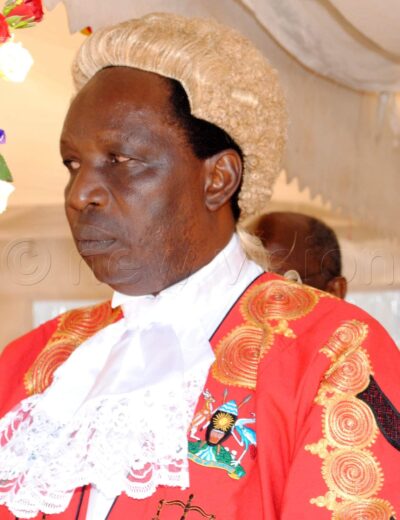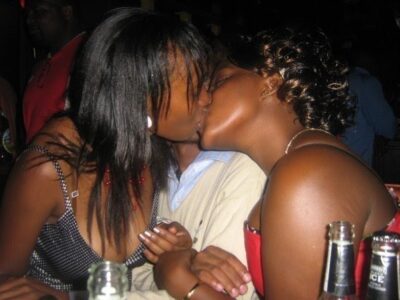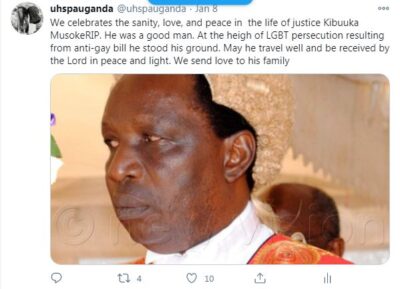A Ugandan high court judge who questioned hate and bigotry has passed on.
At the height of the homophobic witch hunt in the years that preceded the passage of the infamous Anti-Homosexuality Bill in 2014, now-retired Justice Kibuuka Musoke challenged homophobic accusations during a court hearing. He died Jan. 7 in Kampala.
To celebrate his life and his courage, African Human Rights Media Network reproduces here a modestly edited version of an article about him that was first published Nov. 26, 2010, by partner organisation UhspaUganda. May he rest in eternal peace.

Justice Kibuuka Musoke
‘What’s wrong with Lesbian Sex?’ asks Ugandan High Court Judge
A High Court judge in Uganda has questioned assertions that two women in an intimate sexual relationship were acting “against the order of nature.”
In a first to cast a shadow of doubt and unconstitutionality on the draconian Ugandan Penal Code criminalizing same-sex relationships in Uganda, Justice Kibuuka Musoke asked Friday in Kampala what is wrong two intimate women in love commit.
“Two women…..Tell me counsel …….what order of nature is violated here?!” Justice Musoke asked a defense lawyer in a case in which three allegedly LGBT Ugandans sued a Ugandan tabloid for violating their constitutional rights.
The defense lawyer had told a packed court that two of the plaintiffs (names withheld) were lesbians, committing acts against the order of nature and promoting homosexuality.
The lawyer cited several Internet sites where the photos of the plaintiffs are alleged to appear as gay activists. The defense lawyer also claimed that the plaintiffs had appeared in several local publication and media, but had not brought any legal action against the other publications. He cited New Vision, Bukedde and the Observer newspapers.
But Justice Kibuuka Musoke rejected that defense.
“If a thief comes to my [home] the first time and escapes, does it mean I can’t make an alarm the second time?!” the Justice asked.
Earlier this month [November 2010], the Ugandan newspaper Rolling Stone published pictures of alleged gays and lesbians. The paper also published home addresses, favorite pubs and detailed personal information with a call to mobs to lynch them.
Justice Kibuuka Musoke overruled the defence lawyers’ plan to cross-examine a plaintiff “to measure the amount of pain she experienced by the publication of the story.”
The judge said pain is not only physical, but can also be mental, such as anxiety and fear.
“It is disallowed. Court is not satisfied with reasons advanced to cross- examine the first applicant,” the Judge stated.

Same-sex intimacy is still criminalised in Uganda.
Dr Henry Onoria, the lead counsel, and UHSPA member Francis Onyango, defending the plaintiffs, told court that the rights of the three alleged gays to privacy, dignity, freedom of movement and association had been threatened by the publication of the story.
Dr Onoria prayed that the court award Shs 150 million (about US $40,700) as compensation and costs of the case to his clients and a permanent injunction against the Rolling Stone from further publishing names of alleged or actual homosexuals.

This article was first published on Uganda Health and Science Press Association official blog 11 years ago.
Editor’s note: Rolling Stone suspended publication in November 2010 after the High Court ruled that the newspaper had violated LGBTI Ugandans’ rights by outing them and calling for their deaths.
COMMENTS